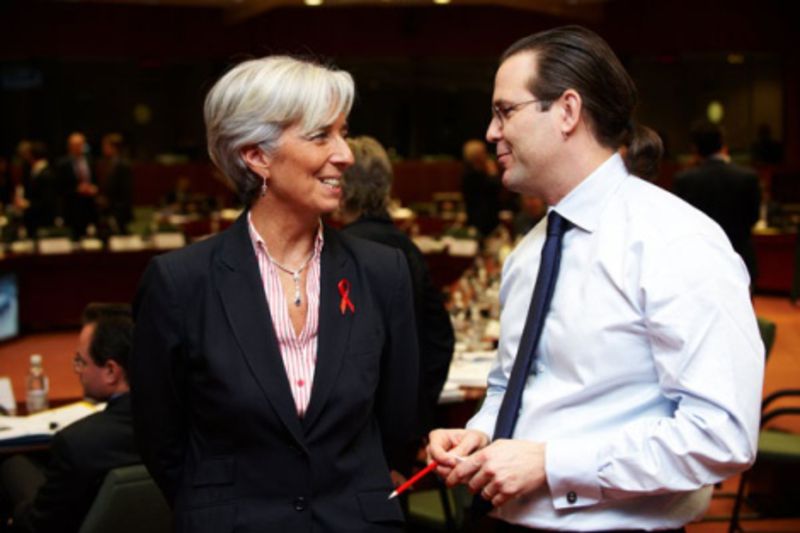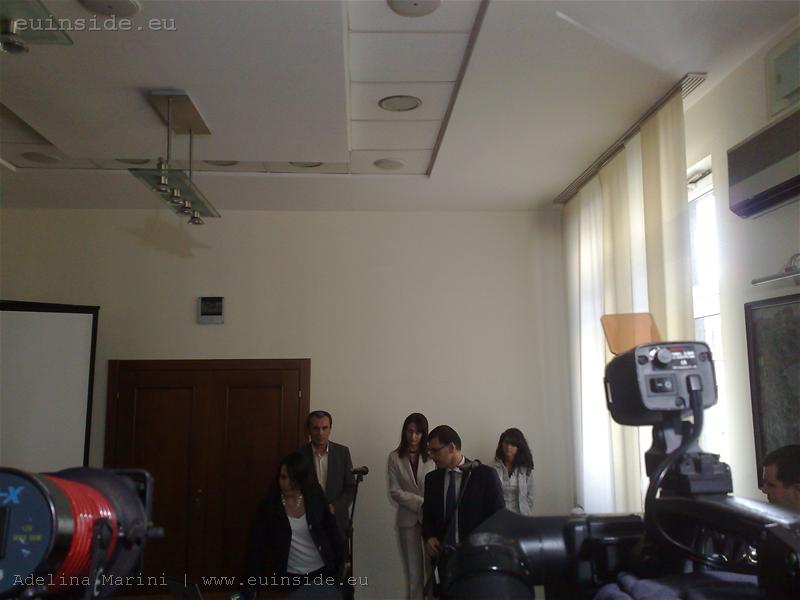"Change is coming"
Adelina Marini, July 5, 2009
I am using the slogan from the campaign of the American president Barack Obama who managed to create the feeling that he was the bearer of change and the American citizens wanted change very much. But this is not the point. The exit-polls after the end of the voting for the parliamentary elections in Bulgaria (19.00H local time) show many surprises - GERB (Citizens for the European Development of Bulgaria of the Sofia mayor Boyko Borisov) is winning unanimously with a result that is twice the forecasts of all opinion polls (around 40%, mainly over 40%) and the party of the mayor of Sofia remained aside from pre-election intrigues, tried to focus on its ideas for the future of the country and rarely let falling scandals. Instead the party of the prime minister Sergey Stanishev, BSP (the Bulgarian Socialist Party) is almost twice below the winner with 17.1%. The result is surprising given the fact that neither the prime minister nor his ministers took a vacation for their campaigns and, in fact, used the instruments of power in their campaign.
The only expected result was that of the DPS (Movement for rights and freedoms, perceived as representing the Turkish ethnic minority in Bulgaria) has 12% but the results are quite uncertain, according to Gallup. The third big surprise is the Blue coalition because its representatives thought their success at the European elections was based upon the nostalgic talking and they focused most of their efforts to enhance the effect - almost all the campaign of the Blue coalition was based upon the claims that the government is trying to prevent the Bulgarians abroad from voting and the rest of its campaign, the coalition focused on asking GERB to acknowledge the Blue coalition as their only logical partner. Today the exit-polls show only 7.6% support for the Blue coalition.
Surprising was the result of one of the youngest parties - Order, Rule of Law and justice of Yane Yanev who, in spite of his very expensive campaign and the aggressive talking, might not manage to overcome the 4% barrier. But the experts say the results for this party are quite uncertain. The same is the situation with the party of an influential businessman with great interests in the field of energy - LIDER. He was accused many times of forcing the workers in his factories to support his party.
All this shows that the biggest power, in fact, is of all those that remained ignored by all parties and to whom no party focused directly - that power is of the people who did not want to vote, who are disappointed and some of them decided to show their civic position. The sociologists predict 53% activity but this is still uncertain because it is still not clear how many Bulgarians have voted in Turkey (there are serious expectations for a record number of voters ). It is also not clear how many voters voted elsewhere in the world.
And one more very interesting thing - the sociologists have not guessed. Most of the polls gave much smaller result of GERB - somewhere around 30% and the second party - BSP was supposed to follow GERB not with much. But the political analyst Ognyan Minchev said for the Re:TV a while ago something very strange: he said that sociologists did not dare say what the real results of GERB are. This statement raises a lot of questions and in the next months it would be very interesting to analyse the situation.
Obviously the time has come not only for a change of politicians and their actions but also for a change of the behaviour of the sociologists, political experts and other ologists. May be it won't be too bad serious regulation to be considered so that there are no doubts on whether sociological agencies give biased results.
So, dear readers, change really is coming. You will only have to reserve a place in the front lines and actively participate in it because no change exists on its own.
 | © Consilium
| © Consilium | © euinside
| © euinside